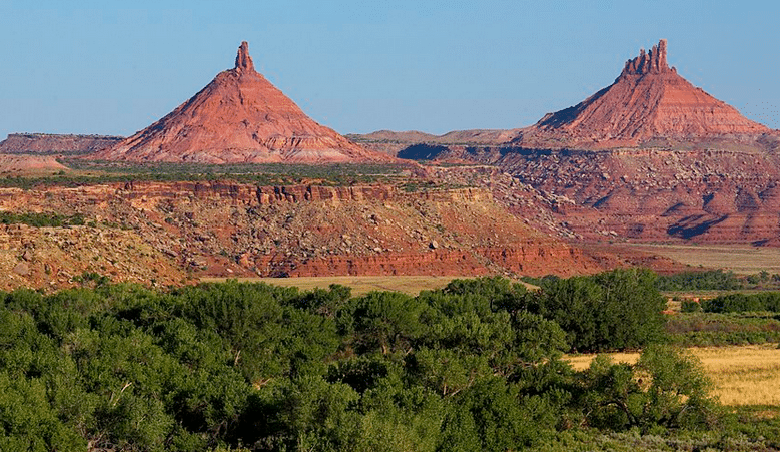Paper National Monuments

Going back to the Clinton administration, Democrats have sought to bolster their environmental credentials by creating large national monuments in the West. This is great. The problem though is that to administer them costs money and the money isn’t there for it. So in some ways, it almost makes things worse–the national monuments attract tourists, but the infrastructure and, most importantly, legal enforcement so that the tourists don’t destroy these places simply is not there.
A presidential order expanding the boundaries of two national monuments in the West has renewed attention to whether the federal government is even able to manage its existing monument lands protected since 2016.
At a recent White House ceremony, President Biden signed executive orders that dramatically expanded the boundaries of the San Gabriel Mountains National Monument outside Los Angeles and the Berryessa Snow Mountain National Monument north of San Francisco. The area included about 150,000 additional acres of protection and came amid pressure by Democrats and some Native Americans, who see the lands as culturally important.
“It’s a good day for California,” said Vice President Kamala Harris, who had tried to push the added protections through Congress while a U.S. Senator from the state.
…..
“The only trace of a national monument at Gold Butte is the entrance sign,” says Patrick Donnelly, Great Basin director for the Center for Biological Diversity.The conservation group sued the Biden administration this Spring over its alleged failure to implement management plans for the Gold Butte and Basin and Range national monuments in Nevada. Both were designated under Obama. Gold Butte lies adjacent to the Cliven Bundy Ranch, site of an armed standoff over cattle grazing in 2014, and where the recalcitrant rancher’s cows continue to illegally roam without permits.
There are no visitor services in particular,” Donnelly says. “There aren’t toilets, trash collection, the roads are not maintained and are in badly degraded condition. It’s kind of the Wild West.”
In Utah, legal battles have led to confusion and delays in managing the Bears Ears National Monument, first designated in 2017 and considered sacred by many tribes in the Four Corners region. Only this year did a draft management plan get released.
Nearby, the Grand Staircase Escalante has become mired in politics too: it was first protected by President Bill Clinton, then shrunk by President Donald Trump, then restored by Biden.
“There are a lot of questions around whether the federal government can manage the current swath of land that it’s taken under its wing,” says Derek Monson, chief growth officer with the conservative Utah think tank, the Sutherland Institute.
The government already faces a large maintenance backlog for fixing roads and trails and other infrastructure across the country’s vast public lands system, he says. And for Monson, there’s a paradox with all the new monument designations. They tend to bring crowds which can threaten the very land that’s intended to be protected.
“It increases people’s interest in going there,” Monson says. “The goal is to preserve or conserve landscapes and sacred sites for Native American tribes and you might actually bring more people in which has the opposite effect.”
While we should consider anything said by the Sutherland Institute to be in bad faith, the facts of this are actually true. If you don’t have the services to deal with what you are doing, you might just be making the situation worse than it was when you had grazing and mining on the land. The solution is to fight for funding, but there are always higher priorities than public lands and so there we go.
